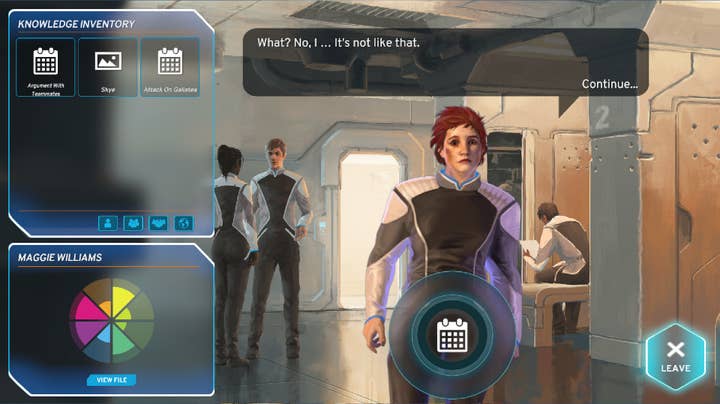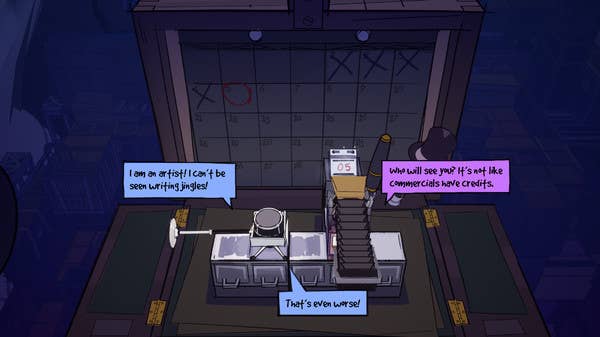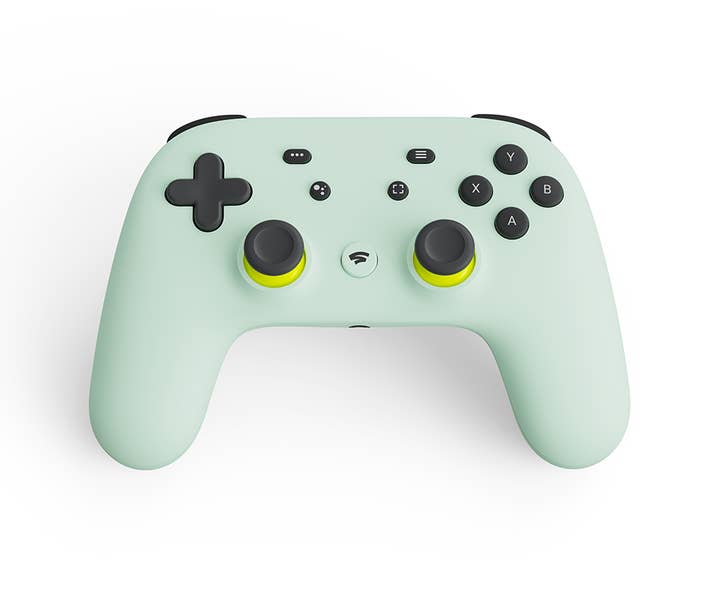Kine creator: "The biggest concern with Stadia is that it might not exist"
DLC: At PAX West, developers Lucy Morris, Ken Hall, and Gwen Frey discuss diversity, community, and Stadia's long-term potential
From time to time, there are interesting bits from GamesIndustry.biz coverage that don't really fit well into the rest of the story, but are still worth reporting. Rather than relegate them to the trash bin of unpublished work, we'd like to repackage them into columns intended to provide additional insight on a variety of topics, publishing them under the banner of "DLC."
Best Friends Forever dev's 'I told you so' moment
At PAX West 2019, I had the pleasure of speaking to a number of independent developers whose games and development philosophies were specifically concerned with social issues.
One of these chats was with Lucy Morris, studio director of Starcolt, who spoke with me at a soft, bright booth where her team had demos of Best Friend Forever -- an adorably lethal combination of dog care and human dating simulator.
Best Friend Forever's announcement trailer debuted during a Nintendo Direct earlier this year and (aside from the adorable dogs) one of the most eye catching elements of the trailer was its extremely diverse cast across race, gender expression, and body type.
"I've been in the industry like a decade, and I just feel like there's a big niche for this kind of stuff," Morris said. "Not even a niche. Like half the market. A lot of the time I've been in creative roles in the games industry and have suggested diverse suggestions to titles, and I've been told, 'That's not going to be lucrative, that's not marketable.' And it's really nice being able to direct this studio and be able to make those decisions without any contest or hindrance and actually see a huge market reaction.
"And all along I knew there would be that kind of reaction, but it's nice to prove it. It feels very, 'I told you so!' Aside from representing like half of humanity, or minorities, which just make up normal human society, and it's also really nice to be able to create games we would like to see as well."
"A lot of the time I've been in creative roles in the games industry and have suggested diverse suggestions to titles, and I've been told, 'That's not going to be lucrative'"
Lucy Morris
Brianna Fromont, who led the charge on the game's character designs, is a perfect example of Morris' point. Fromont stopped by briefly during our interview to share why one particular aspect of the game's representation -- its diverse body types -- was important to her when creating characters for the protagonist to date.
"I have a lot of struggles with my body image and have a history of dealing with that," she said. "I find a lot of games out there really have a specific look to how the characters are, and I really wanted to make people feel like they're represented in this game and everyone's welcome to play. I put so much research into making sure the bodies looked different and all the skin tones looked different, all the facial features are different."
Aside from the immediate visual diversity, Morris also tells me that the potential partners in Best Friend Forever will also represent different "social commitment levels," such as having children, and at least one who lives with a disability.
Though Starcolt is quite representative (four women, one man, all LGBTQIA), Morris acknowledged that no one studio can cover every perspective, and especially their small team had its gaps. She emphasized the importance of researching those gaps to ensure that representation didn't turn into stereotyping, but added that while diversity was important to the group, they hadn't had to specifically try and create characters to fill certain niches. Rather, the team's values and backgrounds had naturally resulted in the game's diverse cast.
"We designed these characters without thinking too hard about it," Morris said. "I feel like people often overthink this stuff, but we just defined a bunch of personalities we'd like in a game and the character designs fell into them and just happened to be diverse. I guess it's a benefit of having a diverse team."
Can there be ethical monetization under the free-to-play model?
Ken Hall is also working on a game focused on representation, but from a far less cute and cuddly angle.
Hall is the CEO and creative director of 2Dogs Games, which is making Destiny's Sword -- a part military shooter, part caregiving simulator in the form of a free-to-play MMO. In Destiny's Sword, players manage a platoon of troops both by ordering their attacks and defense in the field, and also communicating with them outside of battle to support them through their various physical and emotional traumas gleaned from fighting in a war.
There's a lot to unpack in Destiny's Sword surrounding its treatment and consideration of mental health that my editor Brendan Sinclair will touch on in a separate interview with Hall coming soon. But in our PAX West chat, Hall and I dug into the community and live aspects of the game, and how 2Dogs is hoping its focus on caregiving and supporting others will translate from gameplay to real, in-game interactions between players.

Hall told me that there had been a number of reasons for splitting Destiny's Sword between combat and sim interactions, including hopes that it would result in more broad demographics: for example, by attracting more women and a wider age range.
"We feel [that the inclusion of sim elements] will really help with the community-building aspect as well, because it's a group of people who want to work cooperatively and develop those friendships online as well."
I pointed out that having a game where it's beneficial to be nice to other in-game characters doesn't necessarily mean your community is going to default to good behavior all the time. Hall replied that Destiny's Sword would still include basic community management features necessary for an MMO, but added that 2Dogs is specifically designing the game to make trolling behaviors detrimental.
"[Destiny's Sword is] a game that encourages and rewards cooperation. We hope that will naturally select toward the kind of community we want to have"
Ken Hall
"There are always going to be some issues with that, but we also feel a lot of that is just game design mechanics. Our game design doesn't reward narcissistic behaviors. It's not about how much one player can win, it's about how much you can elevate the others around you. And all of the actions we take in the game and even down to the monetization are things that benefit everyone in the group rather than one individual, so it's really a game that encourages and rewards cooperation. We hope that will naturally select toward the kind of community we want to have."
How does a monetization strategy for a free-to-play MMO benefit communities? Hall said that while the specifics are in the works (the game is still in pre-alpha), 2Dogs wants to implement what he called an "ethical monetization strategy" with no pay-to-win, no loot boxes, and "none of the gambling mechanics."
"It's going to be supported by micro-subscriptions, which will be small-amount, short-duration subscriptions on the order of like, $2 a week," he said. "Those will allow you to tailor your gameplay to a certain direction. If you want to focus more on resource collection, crafting and engineering, healing, combat, it will allow you to shift that."
That means players on a particular subscription will have a better chance of bringing new characters to their team that are naturally good at whatever type of gameplay they've chosen to elevate, as well as train their characters in that field more easily, gain special combat bonuses and collect cosmetic customizations that fit the theme. Additionally, the benefits of these subscriptions will improve over time the longer players remain subscribed to them. And those bonuses will in turn benefit other players who team up with the subscriber as they overcome challenges together.
"The biggest thing we want people to take from this is a sense of community," Hall concluded. "Both as players, and hopefully as human beings outside the game. Everybody is stronger together. The more we work together, then the more we're going to succeed. And we hope people take that into their real lives as well, if possible.
Google Stadia's long-reaching potential
My conversation with Kine developer Gwen Frey at PAX West covered a lot of ground, though our feature interview focused on Frey's journey as a developer and how deals with the Epic Games Store and Google Stadia enabled her to make her passion project.
But one big topic we dug into that didn't make that feature is rapidly becoming very timely: the coming launch of Google Stadia. In our chat, Frey was optimistic about Stadia's technology, unsurprising given that Kine is one of the service's launch titles. When the conversation shifted to potential connectivity with livestreams and other technological possibilities, Frey was able to be more clear about what, precisely, Stadia's innovations could mean for independent developers like herself.

"The best platforms for games tend to be things that don't just have games on them," she said. "The PS2 is probably one of the most successful consoles, because it was a DVD player. We didn't buy phones to play games, we bought phones to be phones. It just happened that because everyone had one that it became a platform for games. And I think Stadia can transcend games by quite a bit.
"We didn't buy phones to play games, we bought phones to be phones. It just happened that because everyone had one that it became a platform for games"
Gwen Frey
"Stadia could change conferences, for instance. Rami [Ismail] did a conference this year where everything was streamed live in eight different languages. You could much more easily do that with a system like Stadia. This isn't just about games, it's about anything that's interactive, that's streamed as far as video goes. There are ways to think about this that are much bigger than games.
"That's not the direction Google is going with Stadia. I think Google is pushing Stadia in a direction to compete with consoles, and I think it will compete with consoles. In the short-term, it's going to be in territories where there are a lot of consoles and where the internet is very good, so in the short-term I think it won't reach its potential."
Though Frey is excited about Stadia's possibilities, she acknowledged that the service has some work to do. Google Stadia has received plenty of criticism for its slow, pricey, and at times confusing rollout. Though Frey prefaced her statements by noting she doesn't speak for Google and isn't privy to their plans, she's fairly confident the company's slow start is a deliberate move, and that the true potential of the technology won't be realized for some time.
"I'm not sure it will have a super-strong launch initially, but I don't even think they want to have a super-strong launch," she said. "I get the sense that they want to scale slowly and see where this goes.
"The biggest complaint most developers have with Stadia is the fear is Google is just going to cancel it. Nobody ever says, 'Oh, it's not going to work.' or 'Streaming isn't the future.' Everyone accepts that streaming is pretty much inevitable. The biggest concern with Stadia is that it might not exist. And if you think about it like that, that's kind of silly. Working in tech, you have to be willing to make bold moves and try things that could fail. And yeah, Google's canceled a lot of projects. But I also have a Pixel in my pocket, I'm using Google Maps to get around, I only got here because my Google Calendar told me to get here by giving me a prompt in Gmail. It's not like Google cancels every fucking thing they make.
"This is tech. The default state is failure. But this is cool, and it could really change things."
Disclosure: PAX organizer ReedPOP is the parent company of GamesIndustry.biz.


